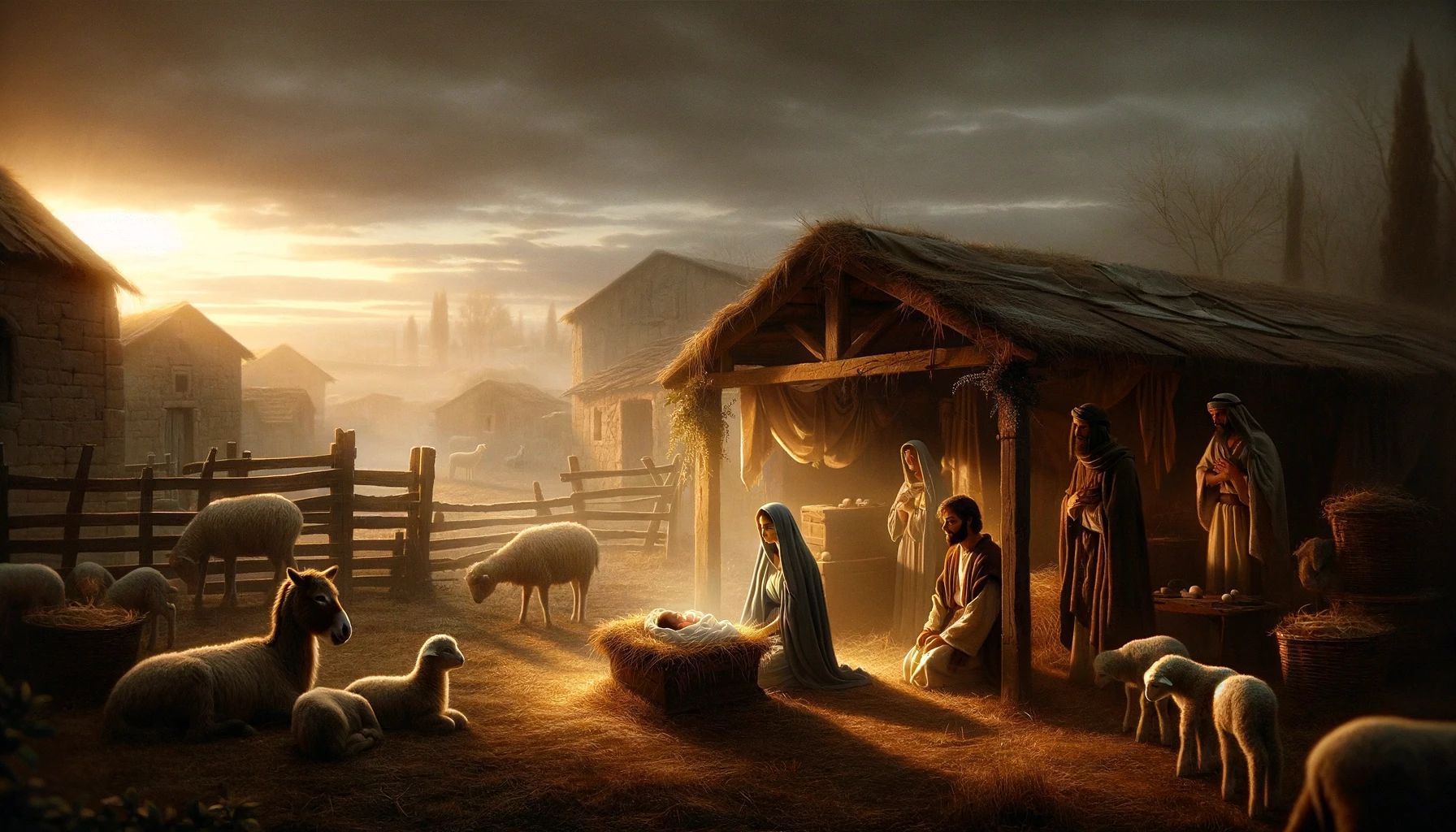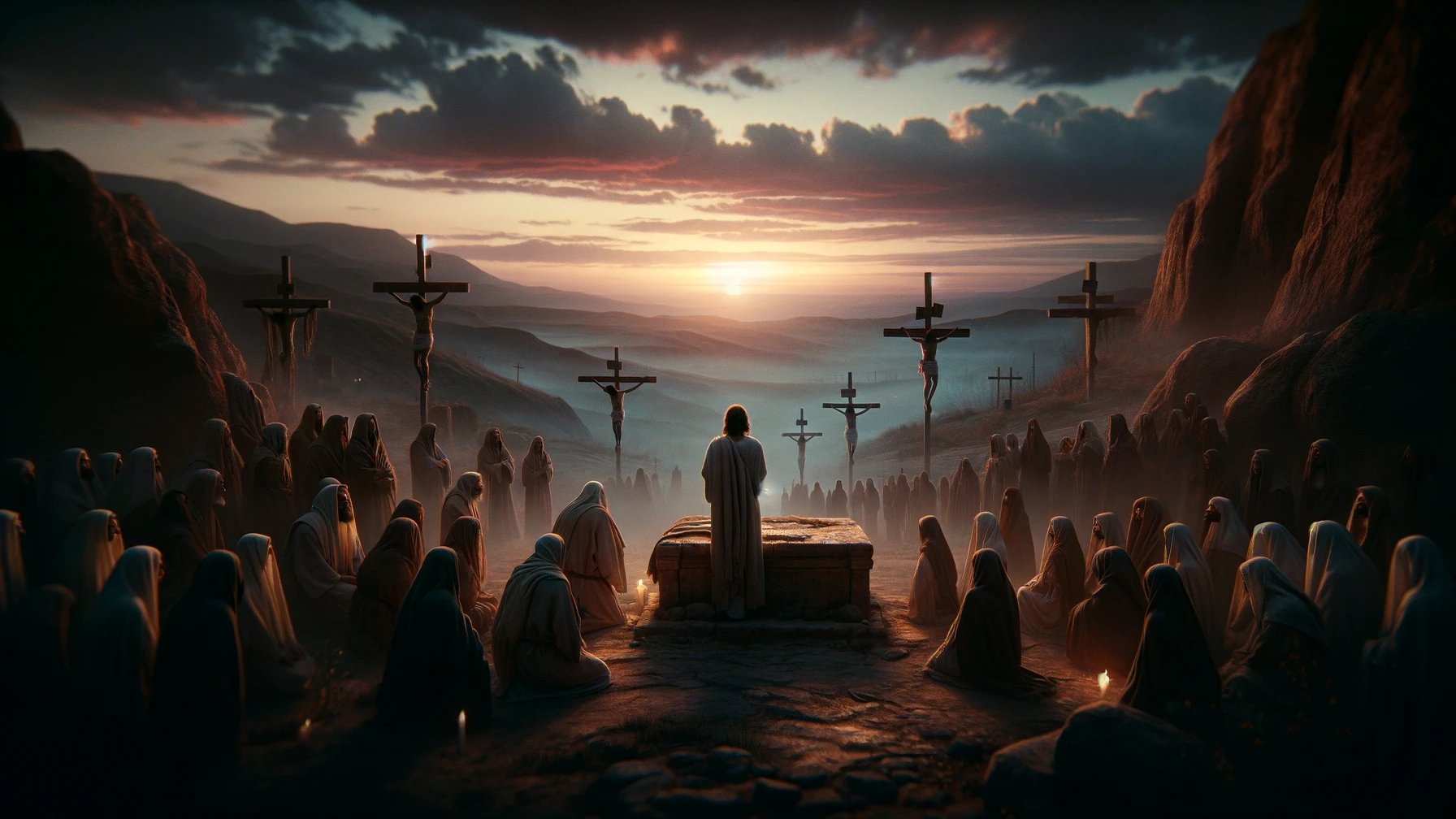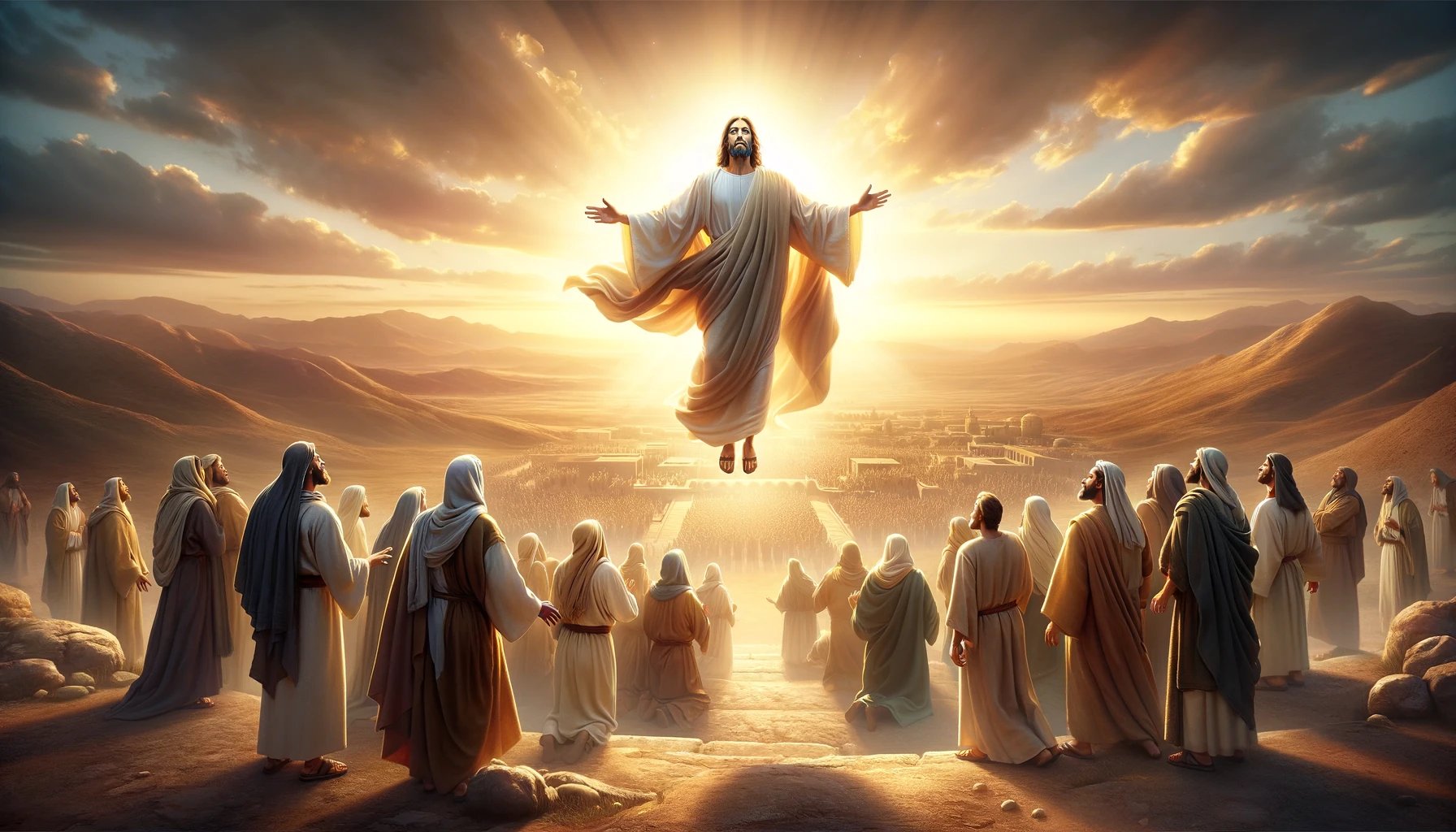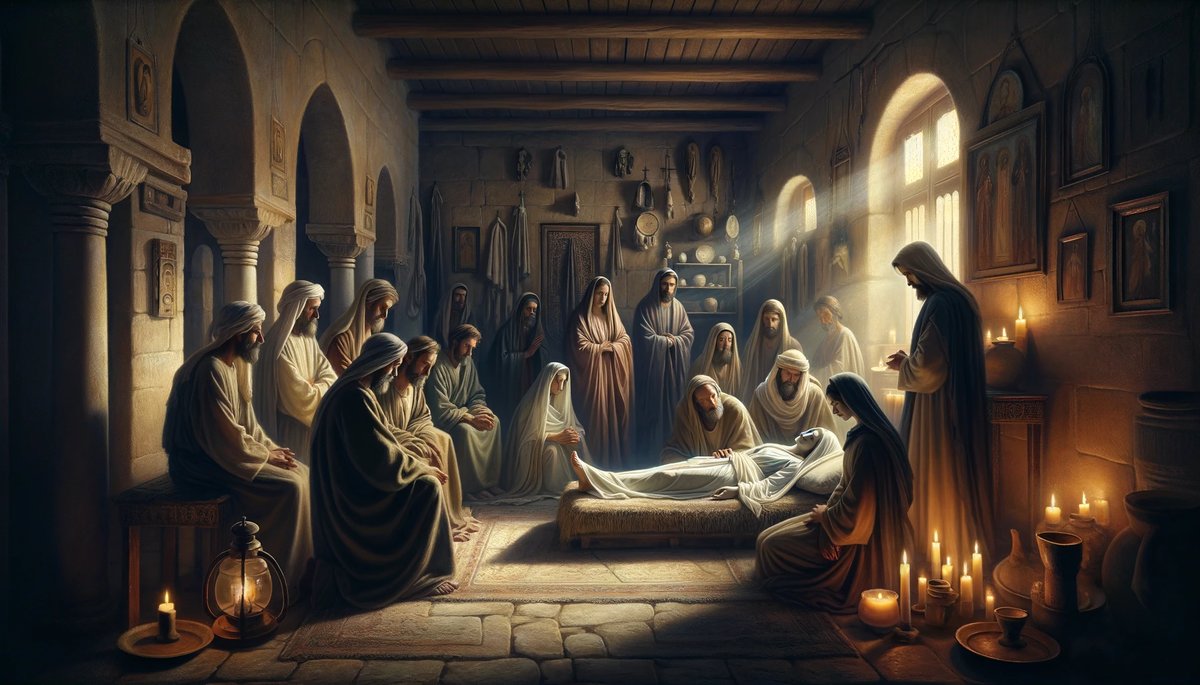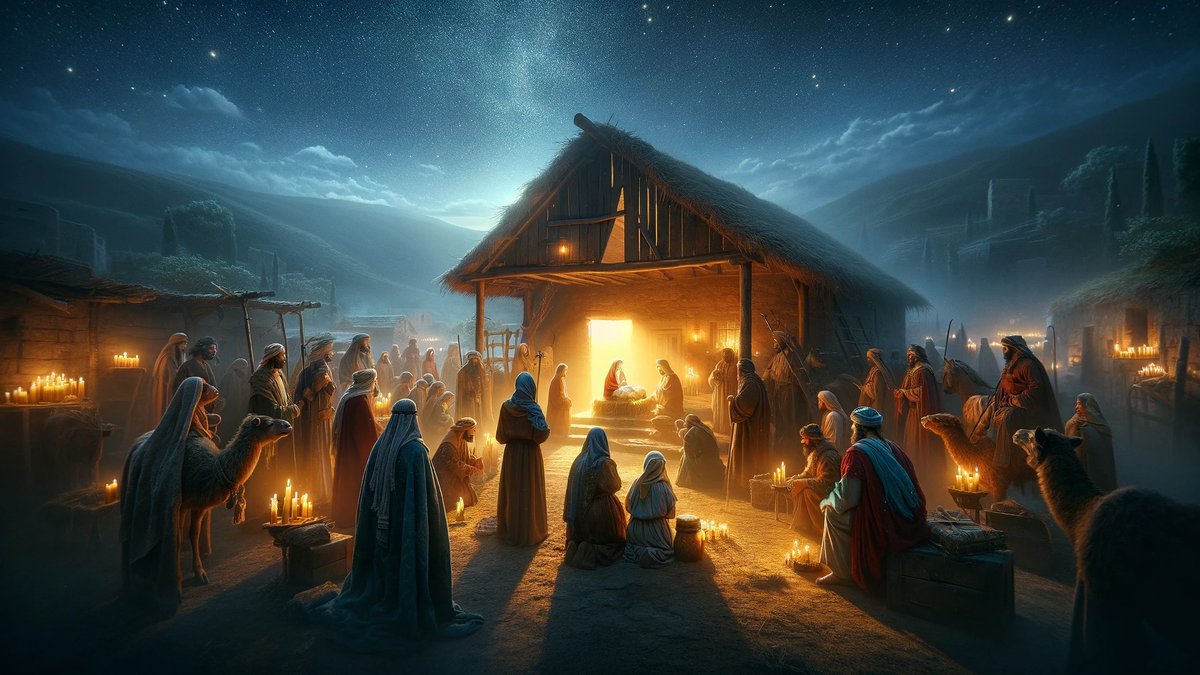Home>Christian Videos>Bible Stories>What Will Happen When Jesus Christ Returns
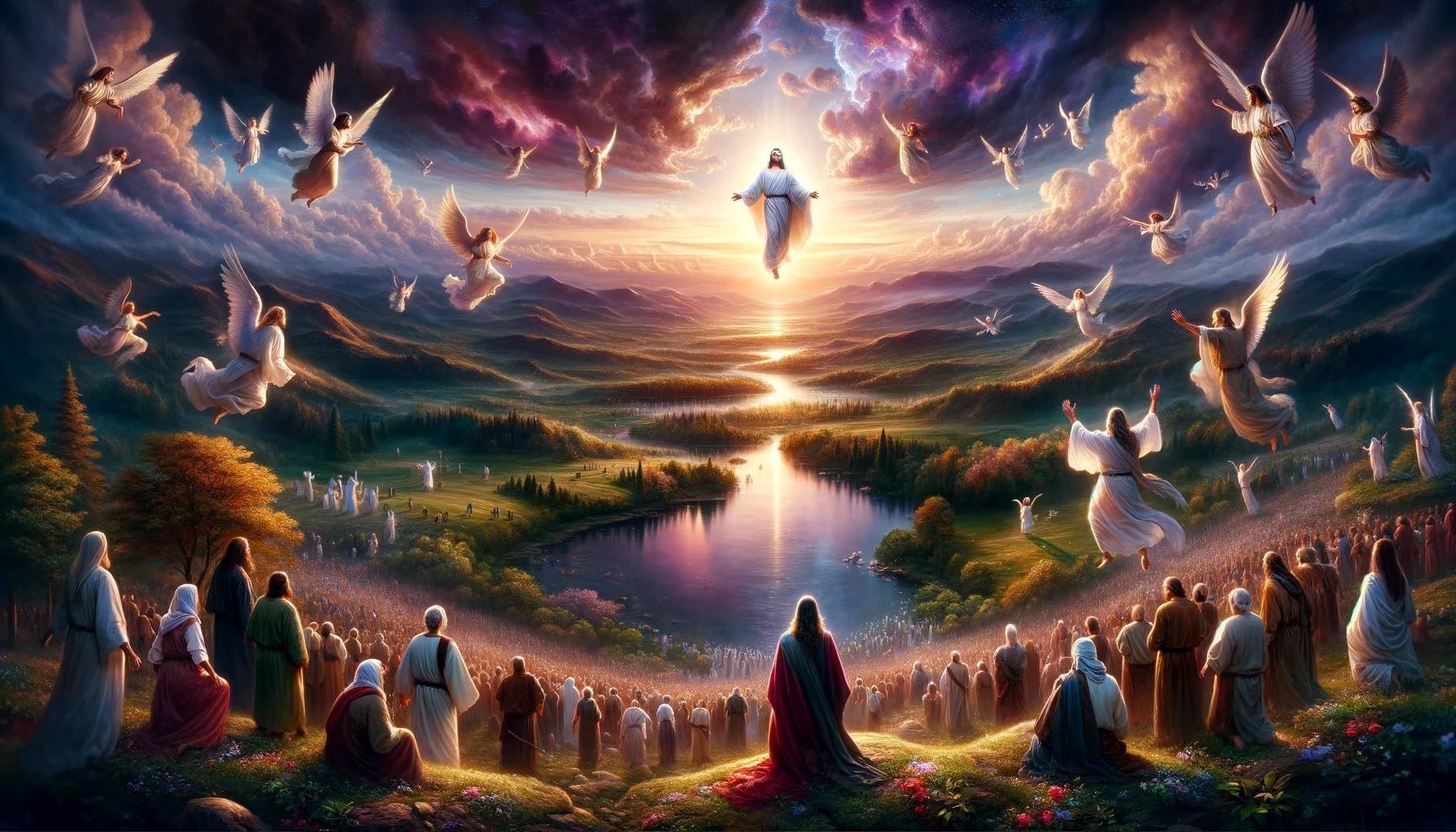

Bible Stories
What Will Happen When Jesus Christ Returns
Published: March 2, 2024
Jason DeRose, Managing Editor at Christian.net, uses his expertise in religion and journalism to deepen understanding of faith's societal impacts. His editorial leadership, coupled with a strong academic background, enriches the platform’s diverse content, earning him recognition in both journalism and religious circles.
Discover the fascinating prophecies and events surrounding the return of Jesus Christ in the Bible stories. Explore the significance and impact of His second coming.
(Many of the links in this article redirect to a specific reviewed product. Your purchase of these products through affiliate links helps to generate commission for Christian.net, at no extra cost. Learn more)
Table of Contents
The Second Coming of Jesus Christ
The Second Coming of Jesus Christ is a fundamental belief in Christianity. It refers to the anticipated return of Jesus to Earth, as prophesied in the Bible. This event is expected to be a time of great significance and transformation for believers and non-believers alike. The Second Coming is a central theme in Christian theology and has been the subject of much speculation and interpretation throughout history.
-
Biblical Prophecies: The concept of the Second Coming is rooted in biblical prophecies, particularly in the New Testament. In the Gospels, Jesus himself foretold his return, and the apostles and early Christian writers also spoke of this future event. The book of Revelation, attributed to the apostle John, contains vivid imagery and descriptions of the Second Coming, adding to the anticipation and mystery surrounding it.
-
Anticipation and Hope: For Christians, the Second Coming represents the fulfillment of God's promises and the ultimate triumph of good over evil. It is a source of hope and encouragement, especially in times of hardship and persecution. Believers are encouraged to remain steadfast in their faith, knowing that Jesus will return to establish his kingdom and bring about a new era of peace and righteousness.
-
Signs and Warnings: According to biblical teachings, there will be signs and events preceding the Second Coming, serving as warnings to humanity. These signs include wars, natural disasters, the rise of false prophets, and moral decay. Christians are urged to be vigilant and spiritually prepared for the imminent return of Christ, as no one knows the exact time or hour of this event.
-
Transformation and Redemption: The Second Coming is believed to bring about a profound transformation of the world and its inhabitants. It is associated with the resurrection of the dead, the final judgment, and the renewal of creation. For believers, it represents the culmination of their faith and the realization of God's plan for salvation and restoration.
-
Mission and Responsibility: In light of the expectation of Christ's return, Christians are called to live faithfully and to share the message of the gospel with others. The Second Coming serves as a motivation for evangelism and acts of compassion, as believers seek to prepare themselves and others for the coming kingdom of God.
The Second Coming of Jesus Christ holds a central place in Christian belief and practice, shaping the faith and outlook of millions of people around the world. It is a source of comfort, challenge, and anticipation, reminding believers of the ultimate victory of God's kingdom and the fulfillment of his purposes for humanity.
Read more: When Is Jesus Christ Returning
The Fulfillment of Prophecy
-
Biblical Prophecies: The concept of the Second Coming is rooted in biblical prophecies, particularly in the New Testament. In the Gospels, Jesus himself foretold his return, and the apostles and early Christian writers also spoke of this future event. The book of Revelation, attributed to the apostle John, contains vivid imagery and descriptions of the Second Coming, adding to the anticipation and mystery surrounding it.
-
Anticipation and Hope: For Christians, the Second Coming represents the fulfillment of God's promises and the ultimate triumph of good over evil. It is a source of hope and encouragement, especially in times of hardship and persecution. Believers are encouraged to remain steadfast in their faith, knowing that Jesus will return to establish his kingdom and bring about a new era of peace and righteousness.
-
Signs and Warnings: According to biblical teachings, there will be signs and events preceding the Second Coming, serving as warnings to humanity. These signs include wars, natural disasters, the rise of false prophets, and moral decay. Christians are urged to be vigilant and spiritually prepared for the imminent return of Christ, as no one knows the exact time or hour of this event.
-
Transformation and Redemption: The Second Coming is believed to bring about a profound transformation of the world and its inhabitants. It is associated with the resurrection of the dead, the final judgment, and the renewal of creation. For believers, it represents the culmination of their faith and the realization of God's plan for salvation and restoration.
-
Mission and Responsibility: In light of the expectation of Christ's return, Christians are called to live faithfully and to share the message of the gospel with others. The Second Coming serves as a motivation for evangelism and acts of compassion, as believers seek to prepare themselves and others for the coming kingdom of God.
The Resurrection of the Dead
-
Biblical Teachings: The resurrection of the dead is a pivotal aspect of the Second Coming of Jesus Christ, as described in the New Testament. The apostle Paul, in his first letter to the Corinthians, expounds on the concept of resurrection, emphasizing its inseparable connection to the return of Christ. The belief in the resurrection of the dead is not only central to Christian faith but also serves as a source of comfort and assurance for believers.
-
Hope and Assurance: The resurrection of the dead offers hope and assurance to Christians, affirming that death is not the end. It signifies the triumph over mortality and the promise of eternal life in the presence of God. This belief brings solace to those who have lost loved ones and provides a profound sense of purpose and meaning to the Christian understanding of life and death.
-
Transformation and Renewal: The resurrection of the dead is associated with the transformation and renewal of both the physical and spiritual aspects of humanity. According to Christian teachings, those who have died will be raised to new life, imperishable and incorruptible. This transformation reflects the victory of Christ over sin and death, culminating in the restoration of God's creation to its intended state of wholeness and perfection.
-
The Hope of Believers: The belief in the resurrection of the dead instills hope in the hearts of believers, inspiring them to live with confidence and purpose. It serves as a reminder that the trials and tribulations of this present life are temporary, and that a glorious and eternal existence awaits those who are faithful to Christ. This hope empowers Christians to face adversity with courage and perseverance, knowing that their ultimate destiny is secured in the promise of resurrection.
-
The Victory of Christ: The resurrection of the dead is a testament to the victory of Christ over sin and death. It signifies the fulfillment of God's redemptive plan for humanity, demonstrating His power to overcome the forces of darkness and to bring about new life. The resurrection of Jesus Christ serves as the ultimate guarantee and example of the future resurrection of all believers, affirming the continuity of God's work of salvation throughout history.
The resurrection of the dead is a profound and transformative belief in Christianity, shaping the faith and hope of believers as they anticipate the return of Jesus Christ. It represents the culmination of God's redemptive purposes, offering the assurance of eternal life and the restoration of all things in accordance with His divine plan.
The Judgment of the World
-
Divine Justice: The judgment of the world is a central theme in Christian theology, reflecting the concept of divine justice and accountability. According to biblical teachings, the return of Jesus Christ will be accompanied by a universal judgment, where every individual will be called to give an account of their lives. This judgment is seen as the ultimate manifestation of God's righteousness and the fulfillment of His moral order.
-
Accountability and Reckoning: The judgment of the world underscores the idea of human accountability before God. It emphasizes the reality that every thought, word, and deed will be subject to scrutiny and evaluation. This concept serves as a sobering reminder of the moral responsibility that accompanies human existence, compelling individuals to consider the implications of their choices and actions.
-
Justice and Mercy: The judgment of the world reflects the harmonious balance of God's justice and mercy. While it signifies the impartial assessment of human conduct, it also embodies the redemptive potential for those who have embraced the grace and forgiveness offered through Jesus Christ. This aspect of judgment highlights the compassionate nature of God, who desires reconciliation and restoration for humanity.
-
Eternal Consequences: The judgment of the world carries profound implications for the eternal destiny of individuals. It is believed that the outcome of this judgment will determine the eternal state of each person, whether in communion with God or separated from His presence. This understanding underscores the significance of the choices made in this life and the eternal ramifications they entail.
-
The Standard of Judgment: According to Christian doctrine, the standard of judgment is based on the moral law of God, as revealed in the Scriptures. The life of Jesus Christ serves as the ultimate standard of righteousness, and individuals will be evaluated in light of their response to His teachings and the redemptive work accomplished through His death and resurrection. This standard reflects the holiness and perfection of God, against which all human conduct is measured.
The judgment of the world is a profound and sobering aspect of Christian belief, emphasizing the ultimate accountability of humanity before God. It serves as a reminder of the moral order established by God and the eternal significance of the choices made in this life. The hope of believers lies in the assurance of God's justice and mercy, as they anticipate the fulfillment of His redemptive purposes through the return of Jesus Christ.
The Establishment of the Kingdom of God
-
Fulfillment of God's Plan: The establishment of the Kingdom of God is a central theme in Christian eschatology, representing the culmination of God's redemptive plan for creation. It signifies the realization of God's sovereignty and the restoration of His divine rule over all aspects of existence. This concept is rooted in the teachings of Jesus, who proclaimed the imminent arrival of the Kingdom and called upon his followers to seek it above all else.
-
Transformation and Renewal: The establishment of the Kingdom of God is associated with the transformation and renewal of the world. It represents the triumph of righteousness over evil, the eradication of suffering and injustice, and the reconciliation of all things to God. This vision of a renewed creation, free from the effects of sin and decay, inspires hope and anticipation among believers, as they await the consummation of God's redemptive work.
-
Universal Peace and Harmony: The Kingdom of God embodies the ideal of universal peace and harmony, where all creation exists in accordance with God's perfect will. It reflects the restoration of relationships between humanity, nature, and the divine, fostering a state of wholeness and flourishing. This vision stands in stark contrast to the brokenness and discord present in the current world, offering a glimpse of the divine intention for the well-being of all creation.
-
The Reign of Christ: The establishment of the Kingdom of God is intimately linked to the reign of Christ as the exalted Lord and King. It represents the full realization of Jesus' lordship over the cosmos, as he exercises authority and dominion in accordance with the will of God. This reign encompasses not only the spiritual realm but also extends to the physical and social dimensions of existence, bringing about a comprehensive transformation of all things.
-
Hope and Anticipation: The concept of the Kingdom of God instills hope and anticipation in the hearts of believers, motivating them to live in alignment with its values and principles. It serves as a source of encouragement, especially in the face of adversity and uncertainty, reminding Christians of the ultimate victory of God's kingdom over the forces of darkness and despair. This hope fuels the pursuit of justice, compassion, and righteousness, as believers seek to embody the values of the Kingdom in their daily lives.
The establishment of the Kingdom of God represents the fulfillment of God's ultimate purpose for creation, offering a vision of hope and renewal for believers. It embodies the longing for a world characterized by divine justice, peace, and flourishing, where the reign of Christ brings about the restoration of all things according to God's perfect design. As Christians await the consummation of this Kingdom, they are called to live as ambassadors of its values and to actively participate in its realization within the present age.

